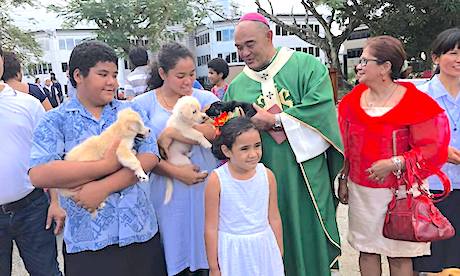A general election is taking place in Fiji on 14 November.
The archbishop of Suva says he does not intend to inform Catholics who they should vote for or vote against.
In a posting on the Archdiocese of Suva’s Facebook page, Archbishop Peter Loy Chong said the Church’s role is to help Catholics form their consciences (mind) in accordance with God’s truth.
He said that during the month of October, they will use the Sunday Homilies to help people form their conscience and practise their political responsibility.
The Archbishop reminded people that Catholic social teaching teaches that “A fundamental moral measure of any economy is how the poor and vulnerable are faring.”
He noted that poverty remains a significant concern in Fiji, despite the overall level of development and the moderately high average incomes.
Trends indicate that the national incidence of poverty declined from 35% in 2002–2003 to 31% in 2008–2009.
But the reduction in poverty was uneven—urban areas saw a reduction from 28% to 19%, while poverty in rural areas increased from 40% in 2002–2003 to 43% in 2008-2009.
Chong also noted that, in 2006, Fiji introduced a regressive taxation system that makes the poor poorer and the rich richer.
“The current economic trend shows an increase in poverty and how the taxation system will make the poor poorer and the rich richer,” he said.
“As Catholics, we are called to work for greater economic justice in the face of persistent poverty and growing income-gaps.”
On the Archdiocese’s Facebook page Chong provides an ethical framework for economic life as principles for reflection, criteria for judgment, directions for action and criteria for election.
He concluded by noting: “All of economic life should recognize the fact that we all are God’s children and members of one human family, called to exercise a clear priority for poor.”
Source
- facebook.com
- Image: facebook.com
News category: Asia Pacific.




